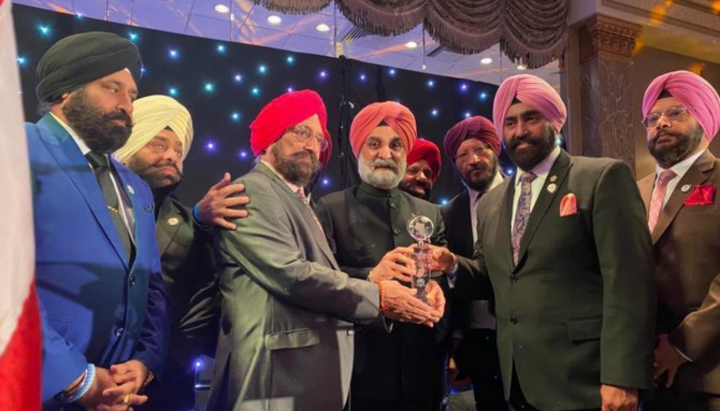
Kansas Cancer Center honours 2 Indian-American doctors
Reading Time: 2 minutes
Two distinguished Indian-American members of The University of Kansas Cancer Center were recognised as “most productive faculty”, and formally invested with endowed professorships.
Breast medical oncologist Priyanka Sharma and gastroenterologist Prateek Sharma were honoured for their efforts in research and treatment of cancer and gastroenterology.
Priyanka, MD, who was invested with the Frank B. Tyler Cancer Research Professorship, is a leading expert on triple-negative breast cancer. She is a professor in the Department of Medical Oncology at the University of Kansas School of Medicine and co-leader of the cancer center’s Drug Discovery, Delivery and Experimental Therapeutics research program.
Priyanka has dedicated much of her career to identifying more effective therapies to treat this aggressive subtype of breast cancer, a University of Kansas Cancer Center release noted.
She serves as vice chair for the breast committee of SWOG and is a member of the SWOG Board of Governors and National Cancer Institute (NCI) breast cancer steering committee.
Prateek Sharma, MD, professor of medicine and director of GI Fellowship Training at the University of Kansas School of Medicine, was invested with the Elaine Blaylock Cancer Research Professorship.
A renowned gastroenterologist and scientist focusing on esophageal diseases, including cancer, he is president-elect of the American Society for Gastrointestinal Endoscopy.
He serves as chair on the Esophageal Committee of World Endoscopy Organization and chairs the American Society for Gastrointestinal Endoscopy artificial intelligence task force.
Both professorships are appointed positions made by Roy Jensen, MD, vice chancellor and director of The University of Kansas Cancer Center.
“Priyanka and Prateek Sharma are outstanding leaders and experts in their respective fields,” Jensen said in a statement.
“Through these endowed chairs, both can pursue more innovative ideas and create more inter-disciplinary collaborations leading to advances in cancer care,” he added.
The University of Kansas Cancer Center is the only National Cancer Institute (NCI)-designated comprehensive cancer center in the region, and one of only 53 in the nation, to receive this elite distinction.
NCI-designated cancer centers are recognised for their scientific excellence, including their depth and breadth of research.
They are the backbone of innovative research and care across the country, helping to pioneer most groundbreaking advances in cancer treatment.




